This article was co-authored by Rebecca Tenzer, MAT, MA, LCSW, CCTP, CGCS, CCATP, CCFP. Rebecca Tenzer is the owner and head clinician at Astute Counseling Services, a private counseling practice in Chicago, Illinois. With over 18 years of clinical and educational experience in the field of mental health, Rebecca specializes in the treatment of depression, anxiety, panic, trauma, grief, interpersonal relationships using a combination of Cognitive Behavioral therapy, Psychodynamic therapy, and other evidence-based practices. Rebecca holds a Bachelor of Arts (BA) in Sociology and Anthropology from DePauw University, a Master in Teaching (MAT) from Dominican University, and a Master of Social Work (MSW) from the University of Chicago. Rebecca has served as a member of the AmeriCorps and is also a Professor of Psychology at the collegiate level. Rebecca is trained as a Cognitive Behavioral Therapist (CBT), a Certified Clinical Trauma Professional (CCTP), a Certified Grief Counseling Specialist (CGCS), a Clinical Anxiety Treatment Professional (CCATP), and a Certified Compassion Fatigue Professional (CCFP). Rebecca is also a member of the Cognitive Behavioral Therapy Society of America and The National Association of Social Workers.
There are 15 references cited in this article, which can be found at the bottom of the page.
This article has been viewed 52,271 times.
Whether you’re reeling from a traumatic event or can’t seem to get out of an emotional rut, seeking out mental health counseling can be a helpful way to get back on track. Since everyone experiences grief, sadness, and stress it can be hard to know when it’s time to see a professional. By knowing what red flags to look for and how to go about getting help, you can start on the road to feeling better.
Steps
Recognizing You Need Help
-
1Deal with depression. Everyone gets down sometimes, but persistent feelings of hopelessness, despair, loss of interest or anxiety lasting more than two weeks can be indicative of clinical depression.[1]
- If the symptoms become severe enough that they are disrupting daily activities or your quality of life, a counselor or health professional might be able to get you feeling more like your old self.[2]
- If you weren't feeling well and had sore throat or flu symptoms, you wouldn't wait to see a doctor. Therapy is the same![3]
-
2Recognize signs of bipolar disorder. Although no one knows what causes bipolar disorder, it seems to run in families and is a mood disorder that can severely affect your life.[4]
- Bipolar disorder can be tricky to diagnose and its symptoms vary. But the main signs to look for are dramatic and unpredictable mood swings. A person with bipolar can have bouts of mania where they become excessively happy, a swell in energy and grand, racing thoughts. This mania is often followed by bouts of depression that can bring anxiety, sadness and even suicidal thoughts.
Advertisement -
3Know about schizophrenia. Contrary to public opinions on schizophrenia, it rarely comes with multiple personalities and is almost always a non-violent mental illness. If you’re dealing with any of the symptoms of schizophrenia, see your doctor quickly to manage the illness.[5]
- Schizophrenia is a serious disease and can cause difficulties in distinguishing between reality and the imaginary. This can mean you are seeing things that aren’t there, paranoia, extreme fixations, and other bizarre behaviors that can rapidly erode one’s ability to live a normal life.
-
4Deal with anxiety. We all feel anxiety from time to time but for some people it can be a crippling experience. If you’re having anxiety that affects your ability to function either at work or socially, you may have a generalized disorder.[6]
- Anxiety can be marked by excessive worry regularly for at least six months, irritability, sleep problems and other general negative feelings.
- There are different types of anxiety that can be brought upon by certain situations or triggers. For example, if everyday social situations trigger anxiety you may have social anxiety disorder. Other types of anxiety include panic disorder, a feeling of sudden terror accompanied by physical symptoms or phobias that are triggered by events like flying or specific objects, like spiders.
-
5Get help processing trauma. Many times, individuals have trouble coping with a recent trauma, such as a car accident, child abuse, sexual assault or loss of a loved one. Although grief and sadness are normal emotions, a mental health counselor can help make the process easier.[7]
- If you are experiencing debilitating and persistent difficulties, seeking out help might make your coping easier. Some of these symptoms may include: anger, fear, anxiety, racing heartbeat and difficulty sleeping. It is normal to feel these after a trauma but if they are disrupting your life and months pass with no alleviation, you may need an expert to help.
-
6Help your relationship. Sometimes it’s not just an individual that needs help but partners in an unhealthy relationship. If your relationship with your significant other is increasingly a point of stress and contention, you might benefit from professional counseling.[8]
- It’s always difficult to recognize and admit problems in your relationship. If you notice you and your significant other having trouble communicating, arguing with increased regularity, and find one another a source of stress, it might be time to seek outside help. Every relationship has issues, but remaining vigilant about early problems could save you and your partner down the road.
Looking for Signs
-
1Watch for dramatic mood swings. Dramatic mood swings may be an indication that counseling is useful for your mental health or the presence of a mental illness. Beyond normal moodiness during puberty, pregnancy, menopause or other stressful life events, serious mood swings can be an indication of a larger problem.
- Mood swings are excessive or abrupt changes in your frame of mind or emotional status. For example, you may shift from euphoria to extreme sadness abruptly and often with no environmental trigger. These can indicative of mental health issues like bi-polar or a personality disorder. If you notice yourself or a friend experiencing persistent, worsening, mood swings, you should seek out mental health help.[9]
- Some mental health issues like depression can be diagnosed as early as two weeks after symptoms begin. You don't need to be feeling unwell for extended periods of time to warrant clinical help.[10]
-
2Seek help immediately if you have suicidal thoughts. If you or anyone you know is thinking about suicide, you should seek professional help immediately. Whether you’re thinking about taking your own life, or suspect a friend, it’s important to recognize this and seek help. [11]
- Suicidal behavior and tendencies can vary from individual to individual. Some telltale signs include: talking about suicide, seeking out means of self-harm (such as pills or a gun), withdrawing from all social contact, rapid personality changes or engaging in risky, self-destructive behavior.
- There’s help. Suicidal thoughts can be scary and even embarrassing but no one needs to face it alone. You should reach out to a close friend or loved one and make an appointment with a counselor. If these aren’t options, call a suicide prevention hotline like the Suicide and Crisis Lifeline at 988 or your local hotline number.
-
3See if you're prone to self-harming. Although suicide is an extreme version of self-harm, other forms can be an indication of emotional pain and distress that could benefit from a professional.[12]
- Self-harm can include cutting one’s skin, burning one’s self or even sticking objects in your skin. If you notice a friend who may be doing these, or if you are yourself, there are safer long-term ways to deal with stresses that cause self-harm.
-
4Get help if you struggle with substance abuse. Addiction and mental health have strong links and individuals often self-medicate. If you or a friend increasingly find drugs or alcohol as a way to cope with emotional issues like stress or anger, it might be time to seek out help in order to find safer alternatives.[13]
- Although it’s fine for legal aged adults to have a drink to unwind, there are early warning signs that an over reliance on substances may be problematic. These include a family history of addiction, neglecting responsibilities because of substance use, dangerous and reckless behavior while intoxicated, needing more of a substance for the desired effect and spending increased time thinking and using the substance. If you notice these characteristics in yourself or someone you know, a mental health counselor may be able to find other more healthy coping mechanisms.
Choosing to Get Counseling
-
1Talk to your primary care physician. It can be overwhelming to navigate all of the options for mental health counseling. Your primary care physician will have experience dealing with medical conditions like depression and can recommend your next step.
- Let your doctor give you a mental health evaluation. Your doctor will be able to assess whether your struggles will benefit from counseling or whether medical treatment is necessary. Many mental illnesses like depression or bipolar disorder can be helped with medication.
-
2Determine what type of counseling you require. Using your doctor and other resources, you’ll need to decide what sort of counselor to seek out. This can vary depending on for what you’re seeking help.[14]
- If you think talk-based therapy will help you, there are licensed therapists and social workers. These can range from those with master's degrees to doctorates in psychology. With the help of your doctor you may decide that a psychiatrist and biological approach using medicine will be most helpful. If your relationship needs help, licensed marriage or relationship counselors may be best.
- Therapy isn't just for the "mentally ill." People seek guidance for grief, interpersonal relationships, stress management, societal concerns, and parenting, just to name a couple areas people want therapy in.[15]
-
3Locate a mental health professional. Once you know what type of counseling may work best for you, you’ll have to start narrowing down concrete options.[16]
- Use your doctor. Your doctor likely has experience dealing with mental health as well as knowledge of your medical history. They may be able to recommend a colleague they think will be a good fit.
- Look online. You have to be careful about this but a simple search can bring you options in your area as well as reviews. You can always contact the professional before meeting to assess whether they can help you and the experience they have in treating similar problems.
- Check with your health insurance provider. If you have insurance, this will not only help from a cost standpoint but they may also be able to help facilitate you finding the specific help you need.
-
4Know what to expect. Once you decide it’s time to get help, you’ll have a lot of different options open to you. Based on your physician's advice, the nature of your problem, and your own research you can find the type of therapy that's best for you.[17]
- Individual therapy. Individual psychotherapy usually entails sitting down one on one with a mental health professional, talking about your problems and taking steps to address your issues in a healthy way. This could be through talk therapy or more traditional methods like psychoanalysis that try to uncover subconscious issues.
- Group therapy. You may do better in a group setting where a support group is guided by the expertise of a mental health professional.
- Interpersonal therapy. This is a type of therapy that focuses on how you interact with friends and family. It seeks to improve communication and build up self-esteem and can address a number of issues like depression and anxiety.
- Cognitive behavioral therapy. This is a particular type of therapy that attempts identify and change behavioral and perceptual problems causing distress. This can be helpful in creating new ways of thinking and new ways of acting that reinforce positive emotional well being.
-
5Be open and honest about your feelings. It can be really hard and even scary to admit that you’re struggling. If you experience any of the above signs, seeking out help as soon as possible.[18]
- Sometimes it can be hard to talk to a doctor or stranger about your deep feelings. If you have a trusted friend, family member or someone like a pastor, they may be a more comfortable place to start. It is always easier to share your burden with someone you trust and care about.
- Make sure you're comfortable with your therapist. It can be hard to discuss such personal, often painful feelings if you are not comfortable and trusting with your choice. If you find you don't click with your first choice, don't be afraid to explore other options. As you get further into the process you will start to gain a clearer understanding of what makes you comfortable and what works best for you.
Expert Q&A
-
QuestionWhen should I see a mental health professional?
 Rebecca Tenzer, MAT, MA, LCSW, CCTP, CGCS, CCATP, CCFPRebecca Tenzer is the owner and head clinician at Astute Counseling Services, a private counseling practice in Chicago, Illinois. With over 18 years of clinical and educational experience in the field of mental health, Rebecca specializes in the treatment of depression, anxiety, panic, trauma, grief, interpersonal relationships using a combination of Cognitive Behavioral therapy, Psychodynamic therapy, and other evidence-based practices. Rebecca holds a Bachelor of Arts (BA) in Sociology and Anthropology from DePauw University, a Master in Teaching (MAT) from Dominican University, and a Master of Social Work (MSW) from the University of Chicago. Rebecca has served as a member of the AmeriCorps and is also a Professor of Psychology at the collegiate level. Rebecca is trained as a Cognitive Behavioral Therapist (CBT), a Certified Clinical Trauma Professional (CCTP), a Certified Grief Counseling Specialist (CGCS), a Clinical Anxiety Treatment Professional (CCATP), and a Certified Compassion Fatigue Professional (CCFP). Rebecca is also a member of the Cognitive Behavioral Therapy Society of America and The National Association of Social Workers.
Rebecca Tenzer, MAT, MA, LCSW, CCTP, CGCS, CCATP, CCFPRebecca Tenzer is the owner and head clinician at Astute Counseling Services, a private counseling practice in Chicago, Illinois. With over 18 years of clinical and educational experience in the field of mental health, Rebecca specializes in the treatment of depression, anxiety, panic, trauma, grief, interpersonal relationships using a combination of Cognitive Behavioral therapy, Psychodynamic therapy, and other evidence-based practices. Rebecca holds a Bachelor of Arts (BA) in Sociology and Anthropology from DePauw University, a Master in Teaching (MAT) from Dominican University, and a Master of Social Work (MSW) from the University of Chicago. Rebecca has served as a member of the AmeriCorps and is also a Professor of Psychology at the collegiate level. Rebecca is trained as a Cognitive Behavioral Therapist (CBT), a Certified Clinical Trauma Professional (CCTP), a Certified Grief Counseling Specialist (CGCS), a Clinical Anxiety Treatment Professional (CCATP), and a Certified Compassion Fatigue Professional (CCFP). Rebecca is also a member of the Cognitive Behavioral Therapy Society of America and The National Association of Social Workers.
Clinical Therapist One of the key factors in deciding whether or not to seek treatment is when you, or those around you, notice a decline in mental health and an increase of symptoms that begin to affect your daily life. If you notice that you don't have the same joy surrounding daily activities, family, loved ones, friends, pets, or if your mood seems out of the ordinary, it would be beneficial to seek treatment. Another important factor is that therapy isn't just for the “mentally ill.” Some people seek guidance just to ensure they have an outlet to manage emotions and cope when things go unexpected. Therapy is for everyone, and therapists are trained to help with a variety of concerns.
One of the key factors in deciding whether or not to seek treatment is when you, or those around you, notice a decline in mental health and an increase of symptoms that begin to affect your daily life. If you notice that you don't have the same joy surrounding daily activities, family, loved ones, friends, pets, or if your mood seems out of the ordinary, it would be beneficial to seek treatment. Another important factor is that therapy isn't just for the “mentally ill.” Some people seek guidance just to ensure they have an outlet to manage emotions and cope when things go unexpected. Therapy is for everyone, and therapists are trained to help with a variety of concerns.
Warnings
- Don't expect instant help. You didn't develop problems in a day and they can't be fixed in a day. Realize that getting better can take time and a lot of work, but you can get better.⧼thumbs_response⧽
- Unless you have professional mental health training, do not attempt to treat others for potential mental health conditions. Always seek professional assistance.⧼thumbs_response⧽
References
- ↑ https://www.nhs.uk/mental-health/conditions/clinical-depression/overview/
- ↑ Rebecca Tenzer, MAT, MA, LCSW, CCTP, CGCS, CCATP, CCFP. Clinical Therapist & Adjunct Professor. Expert Interview. 19 August 2020.
- ↑ Rebecca Tenzer, MAT, MA, LCSW, CCTP, CGCS, CCATP, CCFP. Clinical Therapist & Adjunct Professor. Expert Interview. 19 August 2020.
- ↑ https://my.clevelandclinic.org/health/diseases/9294-bipolar-disorder
- ↑ https://www.mhanational.org/conditions/schizophrenia
- ↑ https://adaa.org/understanding-anxiety/generalized-anxiety-disorder-gad
- ↑ http://www.helpguide.org/articles/ptsd-trauma/emotional-and-psychological-trauma.htm
- ↑ https://www.psychologytoday.com/us/blog/when-your-adult-child-breaks-your-heart/202202/the-4-most-unhealthy-relationship-behaviors
- ↑ https://www.nhs.uk/mental-health/conditions/bipolar-disorder/symptoms/
- ↑ Rebecca Tenzer, MAT, MA, LCSW, CCTP, CGCS, CCATP, CCFP. Clinical Therapist & Adjunct Professor. Expert Interview. 19 August 2020.
- ↑ https://save.org/find-help/im-having-suicidal-thoughts/
- ↑ https://www.nami.org/About-Mental-Illness/Common-with-Mental-Illness/Self-harm
- ↑ https://www.samhsa.gov/
- ↑ https://www.nami.org/About-Mental-Illness/Treatments/Types-of-Mental-Health-Professionals
- ↑ Rebecca Tenzer, MAT, MA, LCSW, CCTP, CGCS, CCATP, CCFP. Clinical Therapist & Adjunct Professor. Expert Interview. 19 August 2020.
- ↑ https://www.nami.org/Your-Journey/Individuals-with-Mental-Illness/Finding-a-Mental-Health-Professional
- ↑ https://www.nami.org/About-Mental-Illness/Treatments/Psychotherapy
- ↑ https://www.betterhealth.vic.gov.au/health/servicesandsupport/talking-to-health-professionals-about-mental-health-issues
About This Article
When you’re struggling with your mental health, it can be hard to know when it’s time to get help. But there are common signs to look out for that can help you decide. For instance, if you’ve been experiencing dramatic mood swings and you’re not sure why, counseling might benefit you. If you have thoughts of harming yourself or someone else, it’s also important to get help right away. Another thing to watch out for is substance use that feels out of control or like it’s affecting your life and relationships. Scroll down for more expert tips, like how to find the right counselor for you!
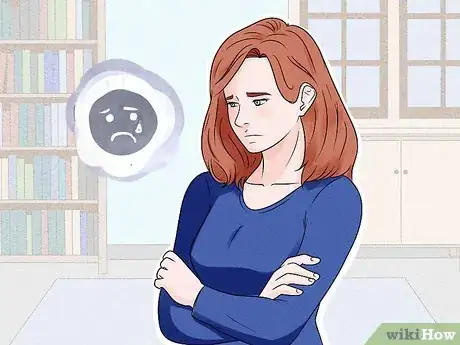

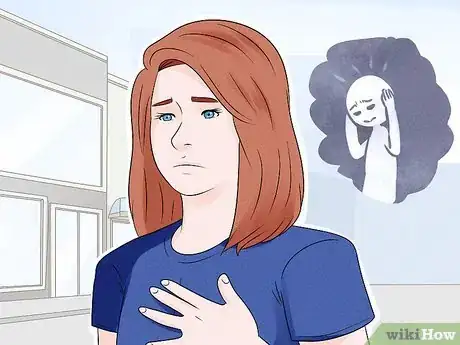
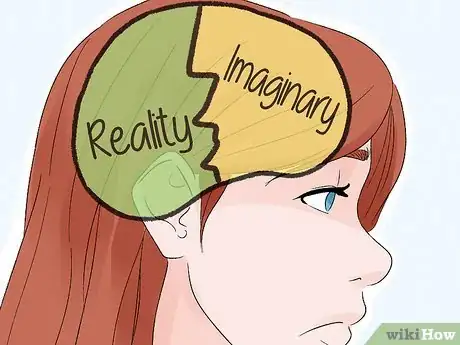
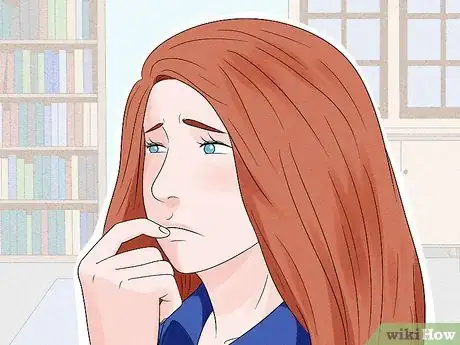
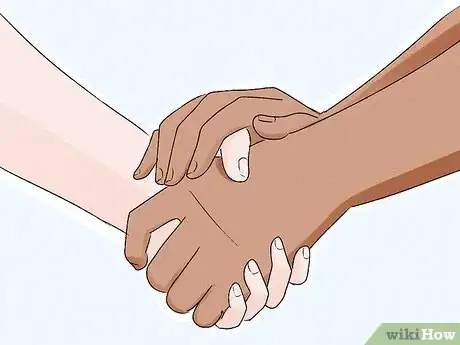

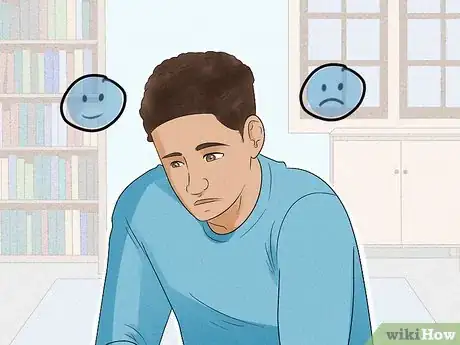
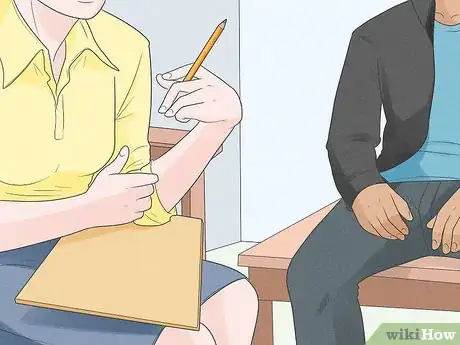
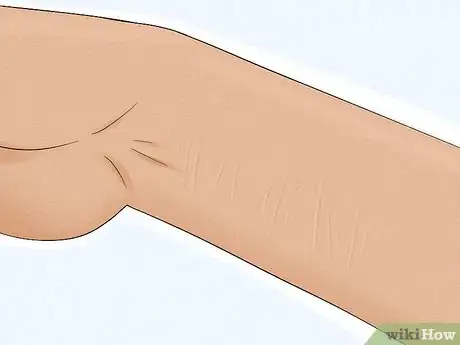

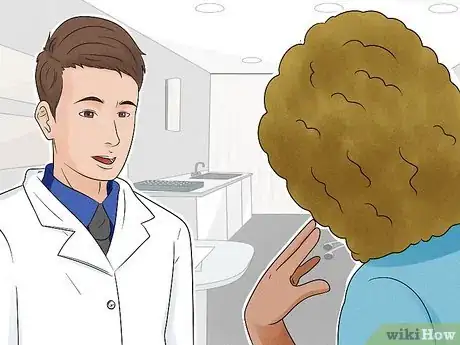
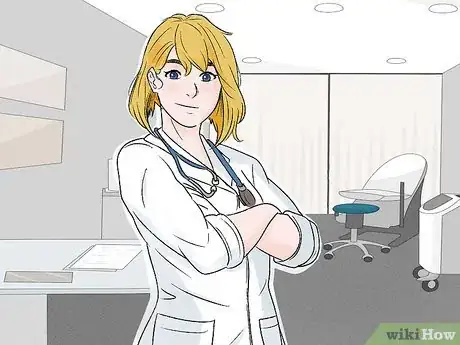

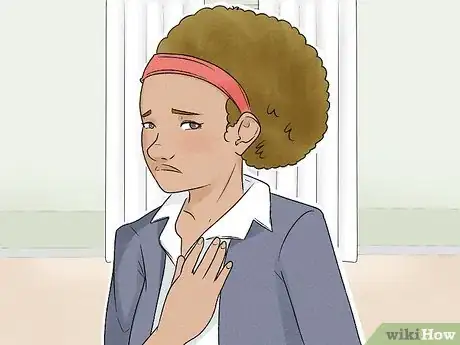


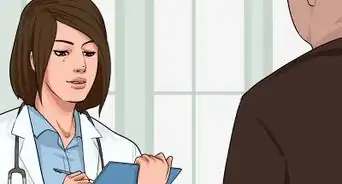
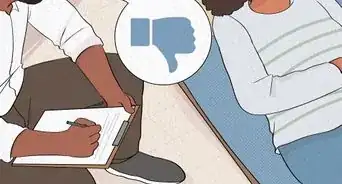
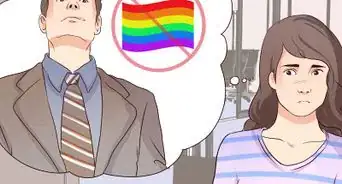
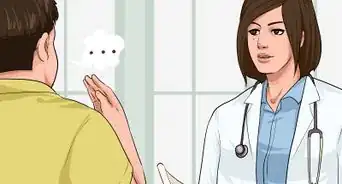
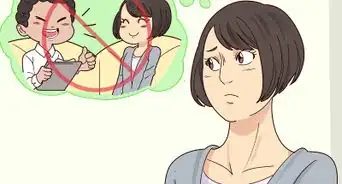














































Medical Disclaimer
The content of this article is not intended to be a substitute for professional medical advice, examination, diagnosis, or treatment. You should always contact your doctor or other qualified healthcare professional before starting, changing, or stopping any kind of health treatment.
Read More...